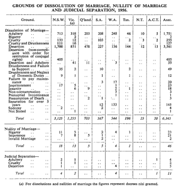Court ruling prompts expulsion bid for convicted politician
By
Gian T
- Replies 0
Parliamentary dramas come and go, but one emerges occasionally that could change a sitting MP's career entirely.
Right now, political circles are abuzz as a high-stakes showdown threatens to unseat a member after a failed bid to stop a crucial vote.
The outcome could set a rare precedent and send shockwaves through the state’s political landscape.
Gareth Ward, 44, who once served as the state’s families minister, has been convicted of sexually assaulting an intoxicated political staffer in 2015 and of sexually abusing an 18-year-old man at his home in 2013.
Despite these convictions, Ward has continued to hold his seat while awaiting sentencing, sparking outrage and debate across the political spectrum and the wider community.
The saga took another twist when a Labour-led push to expel Ward from parliament was temporarily delayed by a court injunction—an injunction Ward himself requested.
However, the NSW Court of Appeal dismissed his bid on Thursday, clearing the way for parliament to debate and likely vote on his expulsion as soon as Friday.
Chief Justice Andrew Bell made it clear that Ward’s attempt to block the vote was unsuccessful and inappropriate, especially since Ward’s legal team failed to give proper notice to the other side.
The court also ordered Ward to pay the assembly’s legal costs, adding insult to injury.
Ward’s legal team argued that the letter he received from the government about the planned expulsion didn’t spell out a case for his removal, only referencing his convictions.
They claimed it didn’t detail any 'unworthy conduct'—the legal basis for expulsion under parliamentary rules. But the judges weren’t having it.
Chief Justice Bell pointedly asked, 'Are you seriously submitting that (Ward’s) convictions ... are not conduct unworthy?' Justice Jeremy Kirk added, 'There can’t be any mystery about it: he was tried publicly on an indictment. He, of all people, must know what behaviour led to his conviction.'
Even if Ward manages to avoid expulsion in the short term, he faces automatic removal if he fails to overturn his convictions on appeal.
His barrister also argued that expelling him now would be unlawfully punitive, as it would prevent him from returning to parliament if he later won an appeal.
Ward, currently in custody, would not even be able to speak in his defence during the parliamentary debate—a point his lawyer described as being 'expelled by a kangaroo court'.
On the other side, lawyers for the parliamentary speaker argued that the expulsion isn’t about punishment, but about protecting the trust and confidence of both parliament and the public. They pointed out that Ward had been given ample opportunity to make his case in writing, and that parliament could have acted without any notice at all.
If Ward is expelled, a by-election will be triggered in Kiama, a seat he’s held since 2011. Interestingly, he managed to win re-election in 2023 as an independent, even after being charged and suspended from parliament—a testament to the complexities of local politics and voter loyalty.
The move to expel Ward has broad support, with both Labour and the Coalition backing the motion.
Opposition Leader Mark Speakman didn’t mince words, saying, 'The Opposition is ready to have Gareth Ward expelled from parliament forthwith.'
This case is a stark reminder of the standards we expect from our elected officials—and the mechanisms in place to hold them accountable when they fall short. It also raises important questions about the balance between legal rights, parliamentary procedure, and public trust.
 Do you think the parliament is right to move to expel Ward before his appeal is heard? Should MPs convicted of serious crimes be allowed to remain in office while they appeal? Or does the public’s trust in parliament demand immediate action? We’d love to hear your thoughts. Please share your opinions in the comments below.
Do you think the parliament is right to move to expel Ward before his appeal is heard? Should MPs convicted of serious crimes be allowed to remain in office while they appeal? Or does the public’s trust in parliament demand immediate action? We’d love to hear your thoughts. Please share your opinions in the comments below.
Read more: Aussie politician faces multiple charges of assault. What happened?
Right now, political circles are abuzz as a high-stakes showdown threatens to unseat a member after a failed bid to stop a crucial vote.
The outcome could set a rare precedent and send shockwaves through the state’s political landscape.
Gareth Ward, 44, who once served as the state’s families minister, has been convicted of sexually assaulting an intoxicated political staffer in 2015 and of sexually abusing an 18-year-old man at his home in 2013.
Despite these convictions, Ward has continued to hold his seat while awaiting sentencing, sparking outrage and debate across the political spectrum and the wider community.
The saga took another twist when a Labour-led push to expel Ward from parliament was temporarily delayed by a court injunction—an injunction Ward himself requested.
However, the NSW Court of Appeal dismissed his bid on Thursday, clearing the way for parliament to debate and likely vote on his expulsion as soon as Friday.
Chief Justice Andrew Bell made it clear that Ward’s attempt to block the vote was unsuccessful and inappropriate, especially since Ward’s legal team failed to give proper notice to the other side.
The court also ordered Ward to pay the assembly’s legal costs, adding insult to injury.
Ward’s legal team argued that the letter he received from the government about the planned expulsion didn’t spell out a case for his removal, only referencing his convictions.
They claimed it didn’t detail any 'unworthy conduct'—the legal basis for expulsion under parliamentary rules. But the judges weren’t having it.
Chief Justice Bell pointedly asked, 'Are you seriously submitting that (Ward’s) convictions ... are not conduct unworthy?' Justice Jeremy Kirk added, 'There can’t be any mystery about it: he was tried publicly on an indictment. He, of all people, must know what behaviour led to his conviction.'
Even if Ward manages to avoid expulsion in the short term, he faces automatic removal if he fails to overturn his convictions on appeal.
His barrister also argued that expelling him now would be unlawfully punitive, as it would prevent him from returning to parliament if he later won an appeal.
Ward, currently in custody, would not even be able to speak in his defence during the parliamentary debate—a point his lawyer described as being 'expelled by a kangaroo court'.
If Ward is expelled, a by-election will be triggered in Kiama, a seat he’s held since 2011. Interestingly, he managed to win re-election in 2023 as an independent, even after being charged and suspended from parliament—a testament to the complexities of local politics and voter loyalty.
The move to expel Ward has broad support, with both Labour and the Coalition backing the motion.
Opposition Leader Mark Speakman didn’t mince words, saying, 'The Opposition is ready to have Gareth Ward expelled from parliament forthwith.'
This case is a stark reminder of the standards we expect from our elected officials—and the mechanisms in place to hold them accountable when they fall short. It also raises important questions about the balance between legal rights, parliamentary procedure, and public trust.
Key Takeaways
- NSW MP Gareth Ward has lost a court bid to halt a parliamentary vote on his expulsion following his convictions for sexual abuse.
- The NSW Court of Appeal ruled the parliamentary assembly still has the power to expel Ward, despite his intention to appeal the convictions.
- Ward’s legal team argued the expulsion process was unfair and overly punitive, but the court found he had been given proper procedural fairness.
- If expelled, Ward’s removal will trigger a by-election in his Kiama electorate, with major parties indicating strong support for his immediate expulsion.
Read more: Aussie politician faces multiple charges of assault. What happened?








